

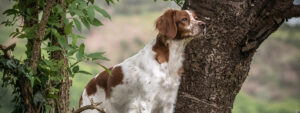
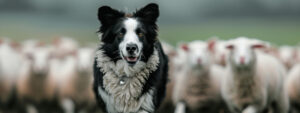
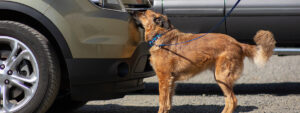
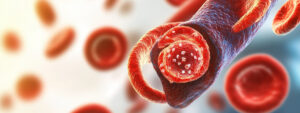
The Canine Chagas Collaborative is a multidisciplinary, translational research program using a One Health approach to detect, treat, and manage infections caused by the parasite Trypanosoma cruzi in dogs. In Texas and across the southern United States, dogs that spend time outdoors, live in rural areas, or live in kennels with many other dogs are at the highest risk of becoming infected.
T. cruzi is most commonly spread by the fecal matter of triatomine bugs — also known as “kissing bugs” because they bite their hosts. Chagas disease — which most commonly develops in humans and dogs — often goes unnoticed in early stages, but chronic infection can lead to serious heart and digestive system problems, making early diagnosis important for patients.
About Us
With a proven history of prominent grant funding, peer-reviewed science, and multiple trainees, the Texas A&M Canine Chagas Collaborative team is led by disease ecologist, and epidemiologist Sarah A. Hamer, MS, PhD, DVM, DACVPM (Epidemiology) and veterinary cardiologist Ashley B. Saunders, DVM, PGCertVetEd, DACVIM (Cardiology) both from the Texas A&M College of Veterinary Medicine & Biomedical Sciences (VMBS).
Dr. Hamer is a principal investigator for the Kissing Bug Community Science Program, which is a collaborative effort between the VMBS and the Texas A&M Department of Entomology. The program researches the ecology and epidemiology of Chagas disease in the southern US, combining studies of vector populations, wildlife reservoirs, domestic dogs, parasite genetic strains, laboratory animals, and human risk. She is a diplomate of the American College of Veterinary Preventive Medicine (Epidemiology) and teaches and mentors students at the graduate, professional DVM, and undergraduate levels through the Ecology & Evolutionary Biology, Biomedical Sciences, and Veterinary Public Health & Epidemiology programs. Learn more about her work at the Sarah A. Hamer Laboratory and the Schubot Center for Avian Health, where she is director.
Dr. Saunders is a member of the Cardiology Service in the Veterinary Medical Teaching Hospital (VMTH) and assistant department head for teaching in Small Animal Clinical Sciences (VSCS). She is a diplomate of the American College of Veterinary Internal Medicine (Cardiology), has a postgraduate certificate in veterinary education from the Royal Veterinary College in London, and was recognized as Texas A&M University’s 2022 Presidential Professor of Teaching Excellence. She is passionate about cardiac imaging and interventions, pursuing opportunities to improve care for those affected by Chagas disease, creating innovative teaching methods to promote learning, and training future cardiologists through the professional DVM program, and the VSCS internship and residency programs.
Research Publications
- Electrocardiographic abnormalities… 2024 JAVMA article
 Title: Electrocardiographic abnormalities are associated with seropositive Trypanosoma cruzi infection status using… Read more: Electrocardiographic abnormalities… 2024 JAVMA article
Title: Electrocardiographic abnormalities are associated with seropositive Trypanosoma cruzi infection status using… Read more: Electrocardiographic abnormalities… 2024 JAVMA article - Positive clinical outcome… 2024 JVIM article
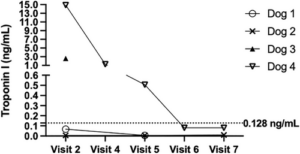 Title: Positive clinical outcome using a modified dosing regimen of… Read more: Positive clinical outcome… 2024 JVIM article
Title: Positive clinical outcome using a modified dosing regimen of… Read more: Positive clinical outcome… 2024 JVIM article - Abundant triatomines… 2024 Acta Tropica article
 Title: Abundant triatomines in Texas dog kennel environments: Triatomine collections,… Read more: Abundant triatomines… 2024 Acta Tropica article
Title: Abundant triatomines in Texas dog kennel environments: Triatomine collections,… Read more: Abundant triatomines… 2024 Acta Tropica article
Latest News
- Research Collaboration Takes ‘One Health’ Approach…2025 VMBS News Article
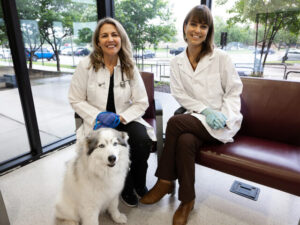 VMBS News published an article about our work, supported by… Read more: Research Collaboration Takes ‘One Health’ Approach…2025 VMBS News Article
VMBS News published an article about our work, supported by… Read more: Research Collaboration Takes ‘One Health’ Approach…2025 VMBS News Article - Protecting Homeland Security…2025 Agrilife Today Article
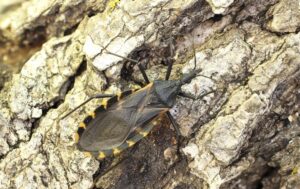 Agrilife Today published an article about our work studying Chagas… Read more: Protecting Homeland Security…2025 Agrilife Today Article
Agrilife Today published an article about our work studying Chagas… Read more: Protecting Homeland Security…2025 Agrilife Today Article - Today’s Veterinary Practice article 2023
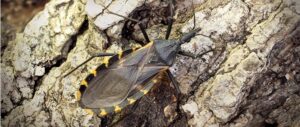 Drs. Saunders and Hamer authored an article published in the… Read more: Today’s Veterinary Practice article 2023
Drs. Saunders and Hamer authored an article published in the… Read more: Today’s Veterinary Practice article 2023
Learn More About…
Help Us!

Have you found a kissing bug?
Submit it to the Kissing Bug Community Science Program!
This program has received nearly 10,000 kissing bugs from the public since 2013 from across 28 states, with photo submissions spanning 10 countries! We welcome your submissions to advance the science.
